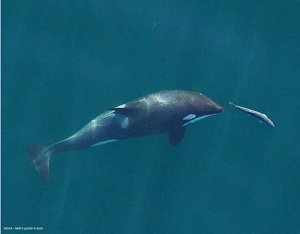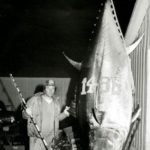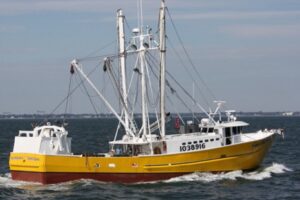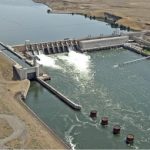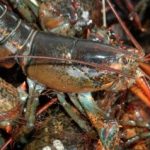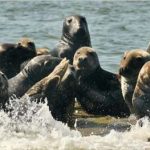Tag Archives: Southern Resident killer whales
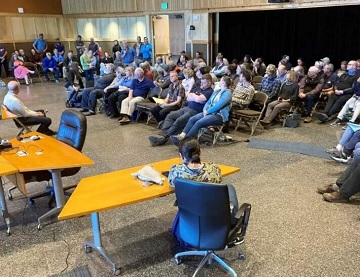
NOAA says revised analysis could allow Southeast king salmon troll fishing, despite ruling
The National Marine Fisheries Service hasn’t ruled out the possibility of opening the summer troll season for king salmon in Southeast Alaska, despite a federal judge’s recent ruling to the contrary. The service’s Alaska regional administrator, Jon Kurland, told a roomful of trollers during a June 7 meeting in Sitka that the agency was working hard to correct the problems identified in the federal lawsuit. The Wild Fish Conservancy in Washington state sued to stop the Southeast Alaska troll season, seeking to protect endangered Southern Resident killer whales’ food sources. >click to read< 12:57
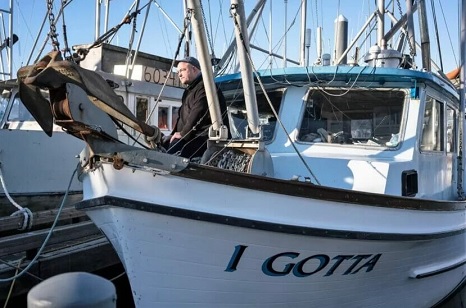
3 Alaska trollers contemplate a summer without chinook
Barring a stay, or a successful appeal, or other eleventh-hour legal action, there will be no troll fishery for king salmon in Southeast Alaska either this summer or winter. The fisheries have been canceled by order of the U.S. District Court of Western Washington on largely procedural grounds. According to the ruling they stem from a violation of the Endangered Species Act, and the failure of the National Marine Fisheries Service to fully address the impact of Alaska’s king salmon trollers on an endangered population of orcas in Puget Sound called Southern Resident killer whales. No other salmon species or commercial gear group or sport fishery anywhere on the entire Pacific Northwest coast is affected by the order, just commercial trolling for king salmon in Southeast Alaska. photos, >click to read/listen< 13:39

Celebrate Whale Week with NOAA Fisheries: A message from Janet Coit, Assistant Administrator
At NOAA Fisheries, our team of dedicated scientists and managers is responsible for the health and sustainability of more than 30 whale species in U.S and territorial waters. Every year, we spend a week taking a deeper dive to share our whale expertise. This year is particularly notable because it is the 50th anniversary of the Endangered Species Act. Some of the most recognizable whales—North Atlantic right whales, Southern Resident killer whales, and Cook Inlet belugas—are at the top of our Species in the Spotlight initiative. >click to read< 18:33
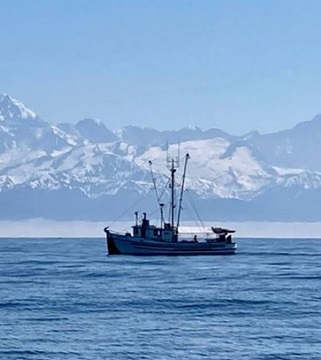
Lawsuit threatens Washington’s commercial fishing families | Opinion
While Alaska might be more than 1,000 miles away, Washington shares a lot more with the 49th State than most people realize. This is especially true in the fishing industry where the relationship between Washington and Alaska runs deep and ripples throughout Washington’s economy and communities. We are seeing the complexities and the nuances of this relationship play out right now in a lawsuit that the Seattle-based Wild Fish Conservancy brought against the National Marine Fisheries Service in 2020 with the goal to shut down southeast Alaska’s small boat, hook-and-line Chinook troll fishery in the misguided name of saving the Southern Resident killer whales. >click to read< 14:57
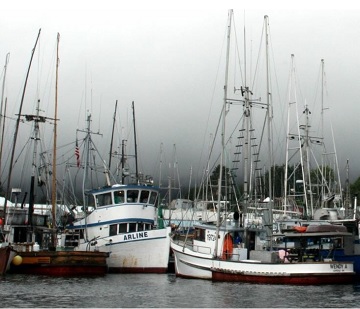
Sitka Assembly considers helping Southeast trollers in legal fight that could shut down the fishery
The Seattle-based environmental group Wild Fish Conservancy wants to stop the Southeast troll fisheries, which they say harm an endangered population of orcas. And in December, a federal judge in Washington issued a report that puts the fisheries at risk of closure. The Alaska Trollers Association is a defendant in the 2020 suit against the National Marine Fisheries Service. Sitka fisherman Matt Donohoe is the president of the Trollers Association. He says they object to the report and expect their legal expenses to increase. “Anyone claiming that Southern Resident killer whales are starving because Alaska trollers were taking food from the mouths of their babies would be laughed out of court. That’s what we thought,” >click to read< 11:48
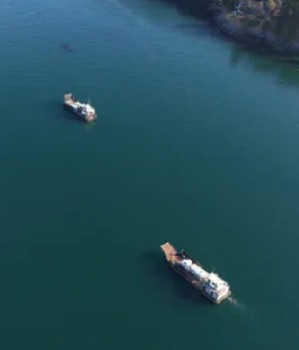
Sunken fishing boat shifts into deeper water in Salish Sea leaking fuel in orca habitat
An update from the U.S. Coast Guard says the 15-metre F/V Aleutian Isle has shifted since it went down Saturday off Washington state, near San Juan Island, roughly 25 kilometres east of Victoria. The vessel, loaded with about 10,000 litres of diesel and oil, was originally resting in about 30 metres of water, but U.S. officials say it is now some 60 metres below the surface. The coast guard says the added depth presents more logistical challenges that the on-scene dive team is working to resolve. Divers are also trying to gather and remove a large fishing net that has floated free of the wreck and the Coast Guard update says officials are watching the area closely even though no marine mammals have been reported nearby. >click to read< 17:55
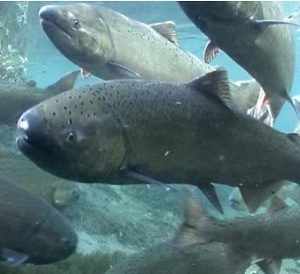
More restrictions for Fraser River chinook fishermen
All but one of 13 Fraser River chinook populations assessed by the Committee on the Status of Endangered Wildlife in Canada are currently at risk. New restrictions this year include maximum size limits of 80 cm in southern marine recreation fisheries to help mitigate risks to larger females, and an expanded fishing closure off the mouth of the Fraser River. Additional closures have been added in the Strait of Georgia and Juan de Fuca Strait for protection of the Southern Resident Killer Whales. >click to read< 09:35
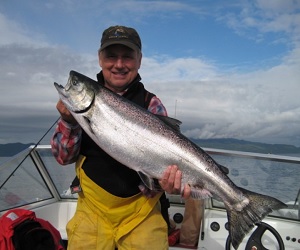
Destroying a fishery will not save Southern Resident Killer Whales – Scientists say feed starving whales farmed salmon
In less than two weeks, a Seattle-based federal judge will decide the fate of some 1,600 Southeast Alaska salmon trollers—fishermen who are already looking at the lowest allotment of Chinook in 20 years, largely due to the past three Pacific Salmon Treaty agreements that have cut, by two-thirds, their allocation of these high-value, sought-after fish. If you haven’t been following the trade press or Alaska media in the past few weeks, you may not know that this group of largely rural Alaska fishermen are today facing the unthinkable: being put out of business—collateral damage as the result of a lawsuit filed by a Washington state-based NGO, the Wild Fish Conservancy (WFC), against the National Marine Fisheries Service (NMFS). In the lawsuit, WFC seeks a Preliminary Injunction to stop the Southeast Alaska summer troll fishery, alleging that NMFS has failed to allow enough king (Chinook) salmon to return to Puget Sound to feed endangered Southern Resident Killer Whales,,, >click to read< 08:16
Feed starving whales farmed salmon, say scientists – “You could use well boats to deliver the farmed fish to where the whales feed.” >click to read<
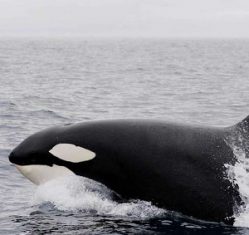
SE Alaska Chinook controversy attracts more user groups
A controversy over whether NOAA Fisheries is properly managing Chinook salmon stocks in Southeast Alaska, with consideration for a hungry whale population in decline, has been joined by sport and charter fishermen who say Alaska is not the problem. The environmental organization SalmonState, along with the Alaska Longline Fishermen’s Association and Alaska Trollers Association said on Monday, April 27, that sport and charter harvesters have joined them in support of NOAA Fisheries in a lawsuit brought by Wild Fish Conservancy, of Duvall, Washington. The group characterizes as misguided the decision of WFC to sue NOAA Fisheries in federal court to halt Chinook salmon trolling in Southeast Alaska effective July 1. >click to read< 16:15

Trollers side with NMFS in Chinook litigation – Endangered whales compete with increasing populations of seals, sea lions
Litigation to halt the Southeast Alaska king salmon fishery to provide sustenance for Southern Resident Killer Whales is prompting commercial trollers to intervene in the lawsuit brought by the Washington state based Wild Fish Conservancy. The Alaska Trollers Association in Juneau voted on Tuesday, April 21, to insert itself into the defense of the lawsuit filed in mid-March against the National Marine Fisheries Service and the subsequent injunction against king salmon fishing and the troll fishery specifically. >click to read< 15:41
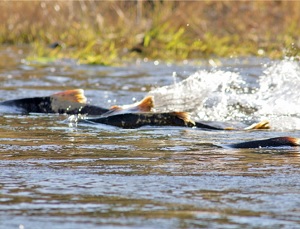
West Coast salmon season taking shape – Feds Look at Protections for Oregon Spring-Run Chinook Salmon
The Pacific Fishery Management Council has adopted ocean salmon season recommendations that provide recreational and commercial opportunities for most of the Pacific coast and achieve conservation goals for the numerous individual salmon stocks on the West Coast. >click to read< 17:25
Feds Look at Protections for Oregon Spring-Run Chinook Salmon -A petition seeking to extend federal wildlife protections to spring-run Chinook salmon found along Oregon’s coast has merit and could warrant listing the fish under the Endangered Species Act, Conservation groups Native Fish Society, the Center for Biological Diversity, and Umpqua Watersheds submitted a new petition in September 2019 specifically for spring-run salmon. >click you< 17:33
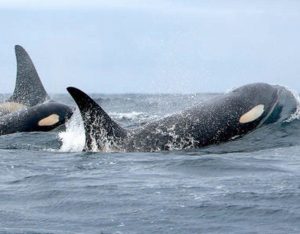
Salmon fishing closures won’t save the whales. Federal government accused of going after salmon fishery as ‘low hanging fruit’
“We (recreational fishers) are taking one per cent of the chinook salmon stock. That’s not the problem. The real problem is these whales are swimming in waters full of human waste,” said Peter Hovey. “It’s all the drugs going down the drain, the human waste, toxic runoff from agricultural operations, and everything else we’re putting into the water. Between that and the inbreeding that we caused, it’s no wonder their numbers are in decline.” Connie and Peter Hovey, >click to read< 10:19
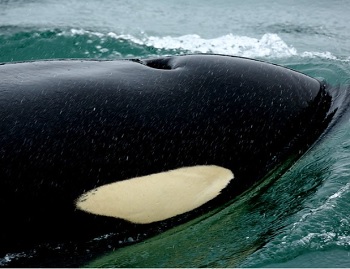
Suit targets Alaska salmon management to protect southern killer whales
The Wild Fish Conservancy filed notice on January 9, stating its intentions to sue the National Marine Fisheries Service for violating the Endangered Species Act, and jeopardizing the existence of Southern Resident Killer Whales. The Conservancy argues that an important food supply of the whales, endangered stocks of chinook salmon originating in Puget Sound, the lower Columbia River, the Willamette River, and Snake River is being depleted by the commercial troll and sport harvest in Southeast Alaska. >click to read< 20:51

PCFFA Reacts to News of Jeopardy Finding for Salmon, Southern Resident Killer Whales
As reported today in the LA Times, the National Marine Fisheries Service determined in an important draft biological opinion [link to the document here] that the changes to California’s Central Valley Project (CVP) and State Water Project (SWP) operations championed by the Department of the Interior would result in jeopardy to spring and winter run Chinook salmon, steelhead trout, and southern resident killer whales (SRKW). The draft opinion was transmitted to the Department of the Interior, which immediately convened a team of outside lawyers and scientific staff from its own agencies to adulterate NMFS science and suppress the document’s findings. >click to read< 20:18
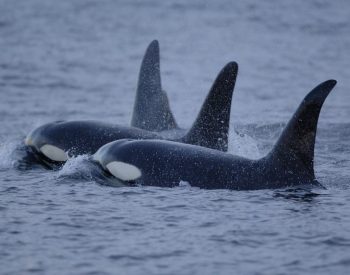
Puget Sound orcas look fatter … maybe because they’ve moved away
It appears that endangered orcas that live around Puget Sound may be moving elsewhere. Groups of southern resident killer whales aren’t showing up this year like they used to. Researchers link the scarce sightings with scarce chinook salmon, the orcas’ favorite food. Salmon runs on the river have fallen dramatically the past few years, so it looks like the killer whales are finding food somewhere else. This month, the whales were seen for just two days around San Juan Island.>click to read<19:36
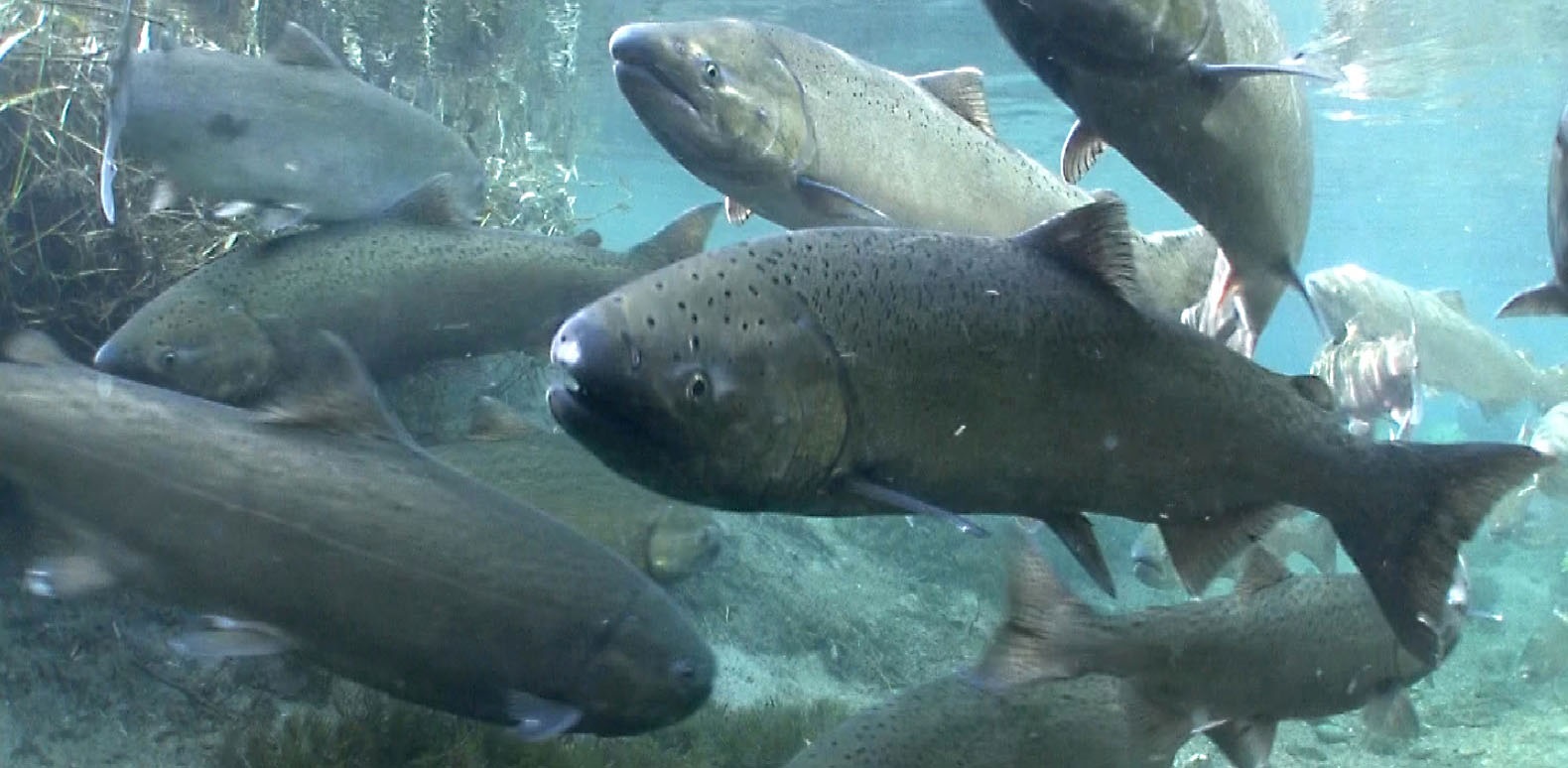
California chinook returns a ‘game-changer’ – California’s chinook may explain why Southern Resident Killer Whales haven’t shown up in BC
Last week, when southern resident killer whales failed to show up in B.C. coastal waters by the end of June, as they usually do, it caused some hand-wringing among whale watchers and Washington conservationists. But if the orcas are late showing up for dinner in B.C., it may be because they were still at the buffet in California, which is reported to be experiencing one of the best chinook returns in about a decade. “I think the California return was a game-changer this year,” >click to read< 13:24

Government of Canada awards aerial surveillance contract in St John’s to improve conservation and protection of our oceans
Making our oceans and our coasts healthier and safer, as well as ensuring our Indigenous, commercial, and recreational fisheries remain sustainable, are priorities for the Government of Canada. Through patrol and enforcement of our laws, Canada continues to protect our oceans, marine life and fisheries from coast to coast to coast. Today, the Honourable Seamus O’Regan, announced that the Government of Canada is awarding a five-year, $128 million contract,,, They will also help enforce the measures put in place by the Government of Canada to protect our endangered whales. This includes monitoring the Gulf of St. Laurence for compliance of the recently-announced fisheries management measures for North Atlantic right whales, as well as monitoring critical habitat areas for Southern Resident killer whales and enforcing fisheries management measures for their primary prey, Chinook salmon. >click to read<22:21
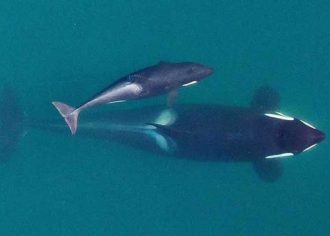
Expert skeptical of Washington state’s orca-saving proposal
“The question is: What’s the problem and what’s the solution?” Ray Hilborn told KIRO Radio’s Dave Ross. “And I have to say, I’m a bit skeptical about much of the discussion that has been raised.” Hilborn is a professor of fisheries and aquatic sciences at the University of Washington. There are many reasons for his skepticism, but a big part of it is that the conversation around the problem has missed the mark on many key points. “It’s almost certainly multiple causes for the decline of Southern Resident Killer Whales, but what I haven’t heard in the discussion is pointing out that Northern Resident Killer Whales, which also depend on Chinook salmon, are doing just fine. There are probably 5-6 times more of them than the Southern residents. Audio report, >click to read<17:47

Protesters call for end to Chinook salmon fishing to save endangered orcas
Demonstrators concerned about the fate of the endangered southern resident killer whale population are calling for an end to all commercial fishing of Chinook salmon. There are just 74 of the southern residents remaining, and scientists say a lack of their primary food source, Chinook, is one of the key threats to their survival. On Wednesday, about a dozen protesters descended on Minister of Fisheries and Oceans Jonathan Wilkinson’s North Vancouver constituency office to call for change. Shirley Samples argued the government needs to ban all commercial and recreational Chinook fishing. “Why don’t we subsidize these fishermen? Why don’t we give them money so they can make it through this time when they have to forfeit fishing? There is a solution,”>click to read<10:20
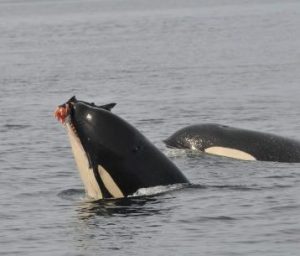
Impossible Choices: The Complicated Task of Saving Both Orca and Salmon
Decades of politics and foot-dragging have stymied the recovery of threatened and endangered Chinook salmon, while an iconic population of killer whales that depends on them veered toward extinction. Now, a last-ditch effort to save the whales may also be what thwarts the recovery of Chinook. The Southern Resident killer whales are dying. An extended family of 75 orcas living year-round in the sea surrounding the San Juan Islands near Seattle, their numbers never fully rebounded since aquariums that later became SeaWorld captured a third of them in the late 1960s. And there are other culprits. Cargo ships and whale-watching boats zip through the Salish Sea, adding noise that interferes with the whales’ ability to locate each other and their prey. The water they live in is toxic. The Puget Sound outside Seattle is tainted with flame retardant, and PCBs and pollutants gush from nearby rivers into the sea. >click to read<10:13
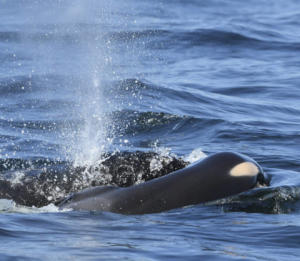
Pinnipeds, not commercial fishing, depriving Orca of salmon
The plight of the orcas has caught the attention of government leaders after a mother orca was spotted carrying her dead baby for nine days in a row; Tom Nelson of 710 ESPN’s “Outdoor Line” podcast has a few ideas for how the state can help save them. Nelson explains that, unlike other types of orca that feast on pinnipeds such as seals and sea lions, the Southern Resident Killer Whales rely on eating salmon to survive. The grieving mother belongs to the Southern Resident pod. There are not enough salmon being produced at hatcheries to feed the Orca in the Puget Sound, Nelson explained, and increasing development has destroyed the salmons’ homes. “That has put a pinch on the diet of these Southern Resident Killer Whale Orcas, >click to read<16:44
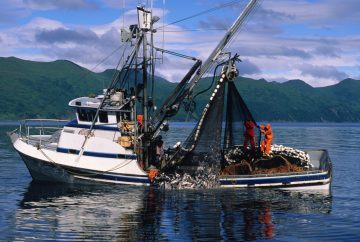
B.C. Commercial fishermen support cuts in Chinook catches
The commercial fishing industry in BC is supporting a move to shut down the Chinook salmon fishery in parts of the Strait of Juan de Fuca and the Gulf Islands as well as partial closures in the mouth of the Fraser River. The federal government is hoping the measures will increase the amount of salmon for the endangered southern resident killer whale population. Dane Chauvel is a commercial fisherman who co-founded the sustainable seafood supply company Organic Ocean and sits on the Commercial Salmon Advisory Board. >click to read<14:17
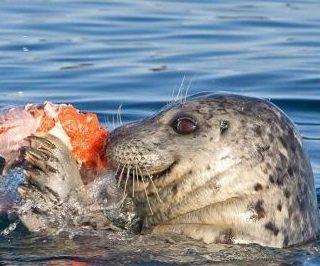
Study says seals eat more Chinook than Southern resident killer whales
Seals are eating more Chinook than Southern resident killer whales. That’s bad for both endangered species’ recoveries. “The seals might not be the enemy as much as the problem is that we’ve lost forage fish available to them,” said Joe Gaydos, science director of the SeaDoc Society on Orcas Island. According to a recent Canadian study, the amount of Chinook salmon eaten by seals in the Salish Sea has increased from 68 metric tons in 1970 to 625 metric tons in 2015. That’s double the amount Southern resident killer whales ate in 2015 in the same location, and six times more than commercial and recreational fisheries according to the study. Continue reading the story here 12:20
PAT NEAL: Whales’ boundless salmon appetite
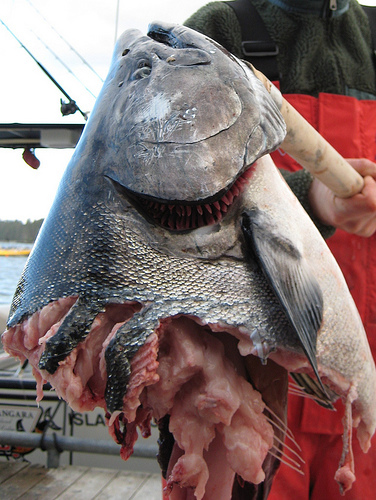 Then there are the many other toxic concerns to keep you awake at night, such as: Are your whales getting enough salmon? A recent article in the Peninsula Daily News (“Diet Decline: Smaller Chinook Mean Lighter Meals For Resident Orcas,” PDN, July 28) detailed the exhaustive research by legions of dedicated researchers who have detailed the declining diet of the orca, or killer whale. Scientists studying the orca fecal matter (yes this is a real job) have revealed that Southern Resident killer whales have evolved to consume a diet of king salmon or chinook in preference to all the other species. The current salmon famine is threatening the most important component of the whale-watching industry: whales. The scientists are quick to parade a list of the usual suspects — overfishing, habitat loss and climate change — while ignoring another common conundrum of concern: the destruction of one endangered species by another. Read the story here 12:37
Then there are the many other toxic concerns to keep you awake at night, such as: Are your whales getting enough salmon? A recent article in the Peninsula Daily News (“Diet Decline: Smaller Chinook Mean Lighter Meals For Resident Orcas,” PDN, July 28) detailed the exhaustive research by legions of dedicated researchers who have detailed the declining diet of the orca, or killer whale. Scientists studying the orca fecal matter (yes this is a real job) have revealed that Southern Resident killer whales have evolved to consume a diet of king salmon or chinook in preference to all the other species. The current salmon famine is threatening the most important component of the whale-watching industry: whales. The scientists are quick to parade a list of the usual suspects — overfishing, habitat loss and climate change — while ignoring another common conundrum of concern: the destruction of one endangered species by another. Read the story here 12:37
Study highlights threats to Southern Resident killer whales
 A NOAA report released on June 25, 2014, which focused on 10 years of research and conservation efforts on the endangered Southern Resident killer whales, confirms that the three major threats to the recovery of the animals are pollution, vessel noise and food availability. Chinook salmon make up a majority of the whales’ diet, Many runs of Chinook are endangered or threatened,, Pollution? Read the rest here 09:16
A NOAA report released on June 25, 2014, which focused on 10 years of research and conservation efforts on the endangered Southern Resident killer whales, confirms that the three major threats to the recovery of the animals are pollution, vessel noise and food availability. Chinook salmon make up a majority of the whales’ diet, Many runs of Chinook are endangered or threatened,, Pollution? Read the rest here 09:16






